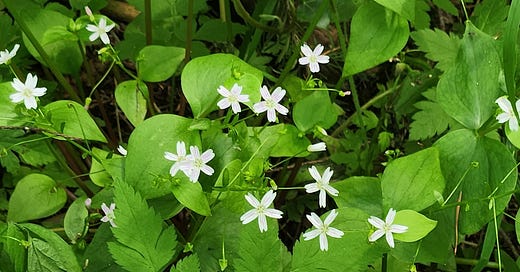“Sipping Beauty” is going to be an occasional series of poems that I find exceptionally well-written and that I want to share with as many people as possible. They won’t ever be poems I’ve written, don’t worry. They will be stand out examples of a practiced master at work. My goal is to give you a taste of something lovely, like a small shot of espresso or cordial, to enjoy at your leisure. I won’t talk much about it. Maybe to draw your attention to a part of the poem or painting I especially loved. But mostly, it’s to give you an opportunity to stop and savor something worth a moment or two of attention.
I read this poem to a class I teach at my local homeschool co-op, and I haven’t been able to stop thinking about it since. I wish I was able to give you a proper expert analysis of it, full of phrases like, “iambic pentameter” or “trochaic monometer” or “enjambment,” but to be completely frank, I am still in the beginning stages of teaching myself all the technical jargon. It’s a bit annoying to be sidling up to middle age, trying to teach myself things I think I ought to have learned 25/30 years ago, but what else can I do? I suppose not try to learn it is an option, but not really. So here I am, reading poetry like I have for decades, but finally developing an appreciation for the magic of form and measure and the way word blends with word to create sound and sound blends with sound to create mood - and trying to teach myself all the labeled parts of this engine of imagery known as Poetry.
The main thing that stood out to me when I read “Journey” by Edna St. Vincent Millay was the way she uses words to slow us down at the end. You’ll notice this if you read it aloud, especially, as I read it to my class.. The poem begins with a phrase of single syllable words that gave me a sense of lingering even while moving forward. But at the end, she gives us several short phrases of single syllable words with lovely commas in between, forcing us to slow down and pause - ever so briefly - after each phrase and really notice what we are saying (or reading) before we end. Notice how the simple phrases are in contrast to the longer more complicated sentences preceding them, and how those phrases give us the opportunity to close our eyes and let the quiet wind of poetic images to blow over us.
I recommend reading this at least twice, and aloud if you can. Enjoy!
“Journey” by Edna St. Vincent Millay (1921)
Ah, could I lay me down in this long grass
And close my eyes, and let the quiet wind
Blow over me—I am so tired, so tired
Of passing pleasant places! All my life,
Following Care along the dusty road,
Have I looked back at loveliness and sighed;
Yet at my hand an unrelenting hand
Tugged ever, and I passed. All my life long
Over my shoulder have I looked at peace;
And now I fain would lie in this long grass
And close my eyes.
Yet onward!
Cat birds call
Through the long afternoon, and creeks at dusk
Are guttural. Whip-poor-wills wake and cry,
Drawing the twilight close about their throats.
Only my heart makes answer. Eager vines
Go up the rocks and wait; flushed apple-trees
Pause in their dance and break the ring for me;
And bayberry, that through sweet bevies thread
Of round-faced roses, pink and petulant,
Look back and beckon ere they disappear.
Only my heart, only my heart responds.
Yet, ah, my path is sweet on either side
All through the dragging day,—sharp underfoot
And hot, and like dead mist the dry dust hangs—
But far, oh, far as passionate eye can reach,
And long, ah, long as rapturous eye can cling,
The world is mine: blue hill, still silver lake,
Broad field, bright flower, and the long white road,
A gateless garden, and an open path:
My feet to follow, and my heart to hold.





"Sidling up to middle-age" is where the beginning of wisdom lies. Learning doesn't pause here, or at least, it shouldn't. It's where you get that 2nd wind for Life. It's where facts become knowledge and knowledge morphs into understanding. It's where we realize how little we truly know, how far we've come and short the road is ahead of us. It's where we recognize the beauty and wonder and we can now "pause and linger" and enjoy.
And the poem is lovely.
I confess I don't know all the proper poetic terms either (at middle age myself), but I think we can all appreciate beautiful poetry - and it's never too late to learn!